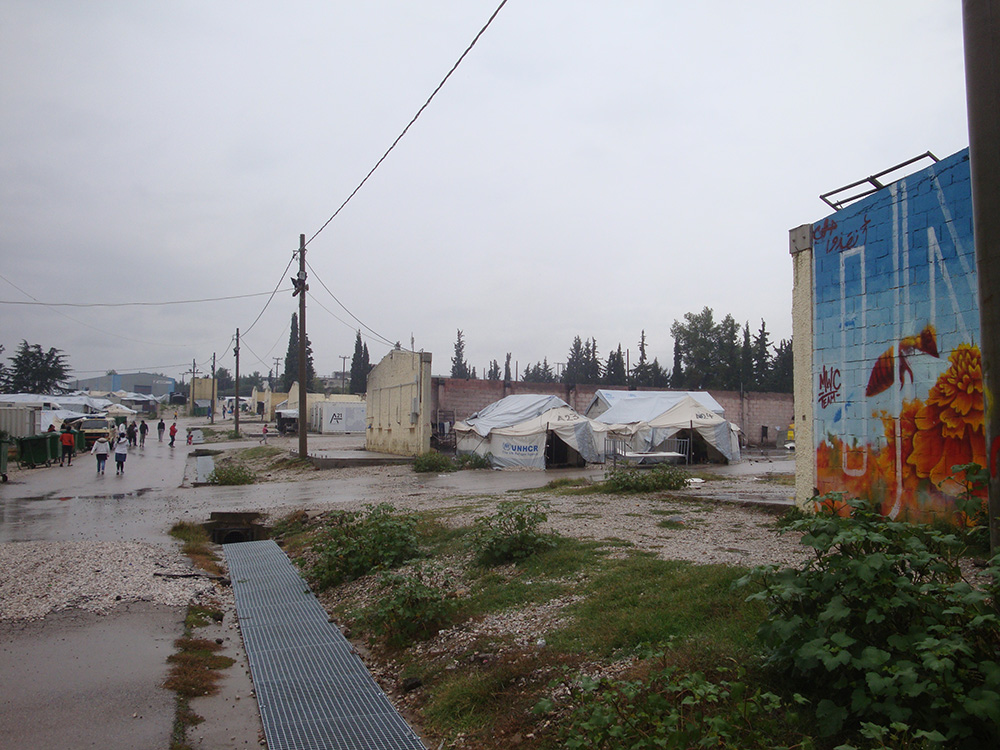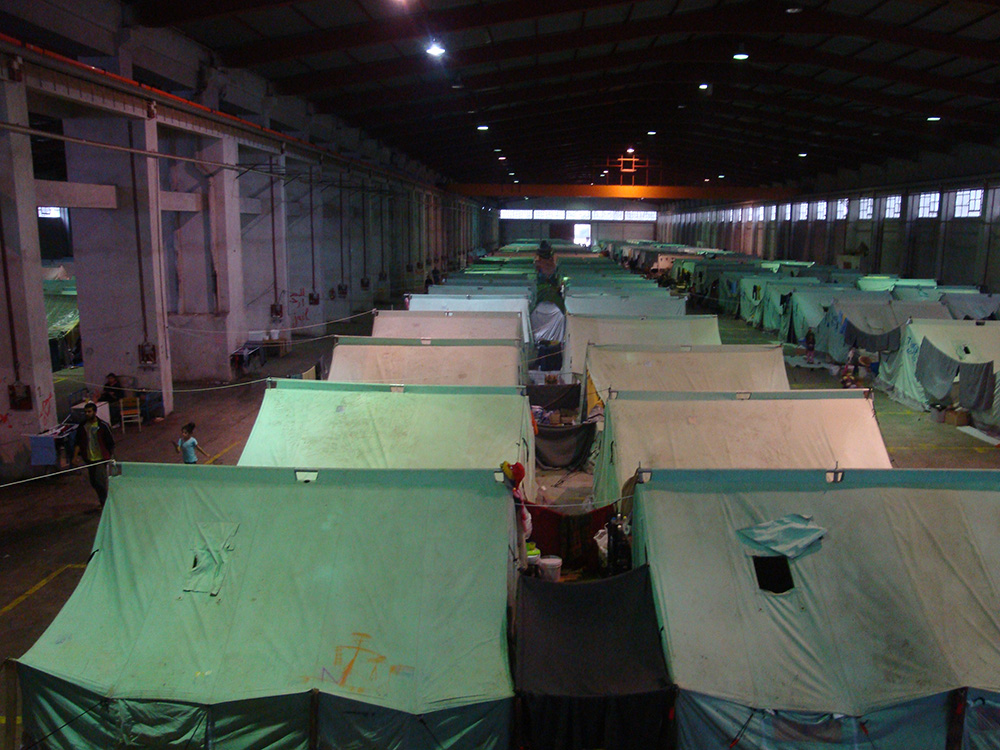Life as a refugee is all about waiting. There are few distractions and scant opportunities for exercise. Some men and boys play football on scraps of uneven wasteland close to the tents. Most play in flipflops so we treat a lot of cuts, abrasions, scrapes and sprains. Another of my many tasks while I am helping provide healthcare to refugees here in northern Greece is to write letters aimed at the local United Nations office. The hope of the requesting refugees is that such letters will fast-track their departure from the tented camp. The UNHCR fast-track some people with disabilities who find it difficult to cope with the living conditions move more quickly to better accommodation. It is tough, especially for the elderly or those with small children as they sleep on camp beds, have a long walk to the loo and shower in cold water in a draughty Portacabin.
When a healthy young Kurdish man strode into the clinic, I didn’t expect I’d be able to write a letter that would help him. He wasn't old and crippled with arthritis. I was less than sympathetic, until – via the interpreter – I heard his story.
He’d been shot in the legs. A bullet had shattered his right thigh bone and another had entered the flesh of his left leg. He had difficulty going to the toilet. I was puzzled. How did this stop him going to the toilet?
I looked at his legs. The right was a complete mess, with a wide scar running down most of the length of his thigh. He’d clearly received excellent emergency care. A surgeon had stopped the bleeding, stitched up what must have been an enormous gaping wound and undoubtedly saved the man’s life. There had, however, been absolutely no rehabilitation or further care in the intervening two years.
Now he was so weak that he had difficulty squatting. His legs trembled even on bending his knees even just a little. I couldn't see how he'd manage to opening his bowels over a basic outside toilet. He wasn’t strong enough to join in with football either, so missed out on the only entertainment there was in the camp. His legs just weren't up to it. He was alone in Greece. Time dragged. His nights were tortured.
I tried to be up-beat. Quadriceps weakness should be reasonably easy to remedy, although I was unsure how rehabilitatable his legs would be. I showed him the some exercises which require no equipment and suggested he should try to do them once or twice a day.
I wrote his letter for the UN and told him to come back so that I can see if the exercises had helped improve his strength. I wondered he would be able to find the motivation to help himself. He looked depressed. And – like as many of the Syrians I treat – perhaps he hoped for a quick fix with medicines or a referral to a hospital for some impressive scan or high tech test. I had to work hard to persuade them to adopt simple self-help techniques.
I had grown a little bossier in my consultation style. A young mother came to see me with her child and after I’d finished checking the patient, the mother asked for anti-inflammatory cream for her neck pain. I offered a consultation about her problem but my interpreter said that the mother wasn’t interested in advice; she just wanted the cream.
Feeling a little guilty I said, ‘No advice, no cream!’
The woman – reluctantly, it seemed – agreed to talk to me about her pain. I showed her the soothing neck-stretch my physiotherapist son taught me for a similar pain that sometimes troubles me. At the end of the consultation there was quite a long exchange between the mother and the interpreter while I felt ever guiltier about having bullied the woman into listening to my advice. Finally, the interpreter translated the gist of the conversation. The woman liked consulting me because she always felt better afterwards.
Phew – I’d got away with being overbearing this time…. Meanwhile, I wonder if I shall ever learn why she was reluctant at first to speak about her symptoms or why the man with weak quads never came back. Maybe he'd left the camp. Maybe my letter helped. Maybe he'd crossed illegally into Albania. Maybe he'd travelled to another camp – there are many more near Athens – in search of friends and relatives. The refugee population is in constant flux.
 |
| Recent rain has made Diavata tented camp muddy |
 |
The roof of the former car factory at Oreokastro is prone to leak
when the rain is heavy |
The first of this series of pieces about my experience working with Syrian refugees in Greece is here:
In Diavata Camp